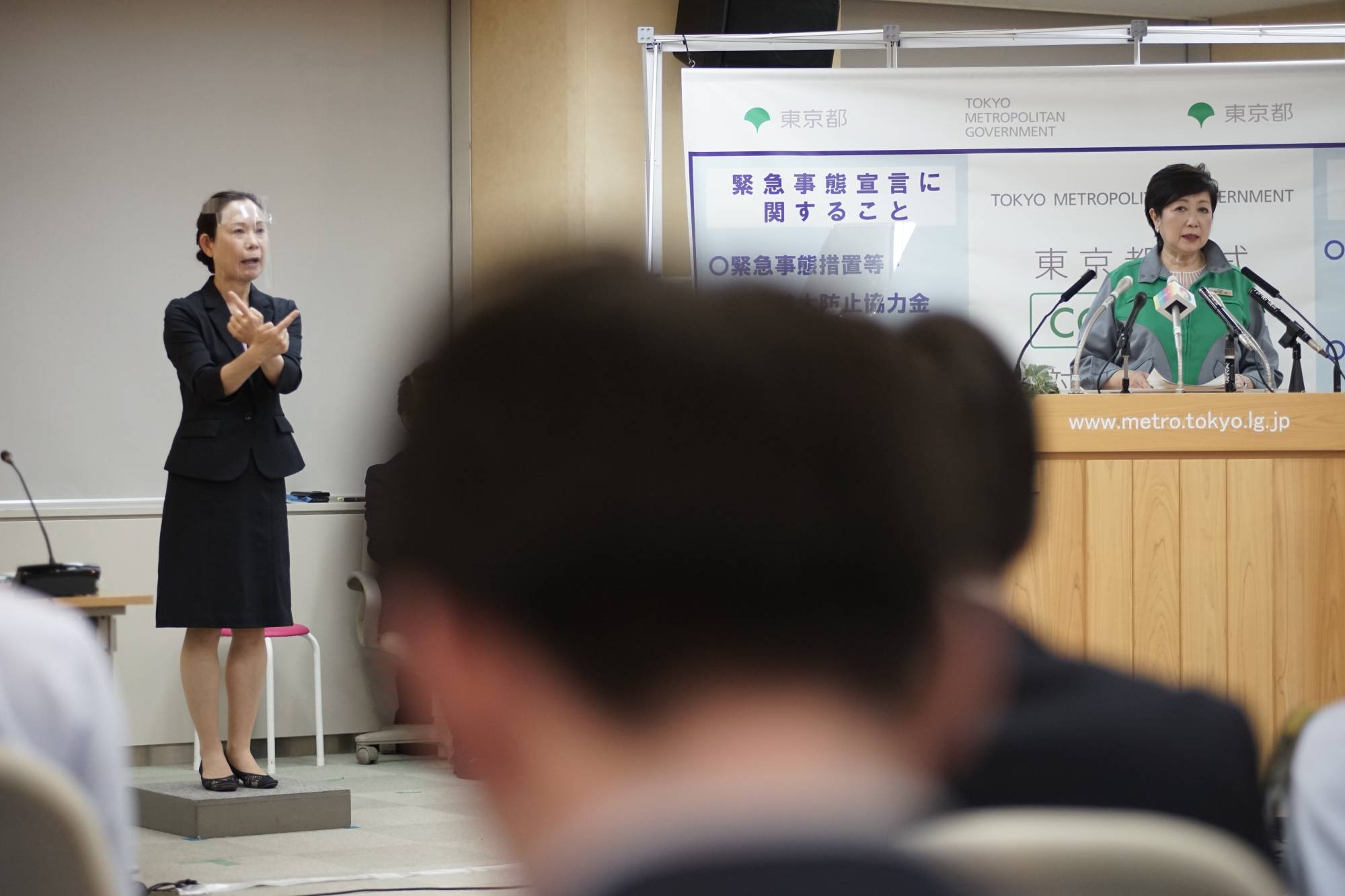When Tokyo Gov. Yuriko Koike in late April asked residents to grocery shop three times a week to limit unnecessary outings to curb the spread of coronavirus, Toshiya Kakiuchi, 31, who has dysosteogenesis, or defective bone formation, worried the measure would pose challenges to his daily routine. He has spent most of his life in a wheelchair.
The coronavirus outbreak in Japan is creating new hurdles for people with disabilities, adding to the already existing challenges in their everyday lives. These challenges make disabled people worry the pandemic will slow down Japan’s progress toward a barrier-free society. They hope the new reality will provide the impetus for new policies and initiatives that will address the impact of COVID-19 on people with disabilities.
“Limiting grocery shopping to every three days requires purchasing a specific amount of products, but for wheelchair users, visually impaired people or others unable to carry heavy loads due to disabilities, this would place limits on what one can buy,” said Kakiuchi, who heads consultancy firm Mirairo Inc. and serves as an adviser to 2020 Tokyo Paralympics organizers. “I feel that some measures introduced to curtail the outbreak (could adversely) affect the disabled community.”


















With your current subscription plan you can comment on stories. However, before writing your first comment, please create a display name in the Profile section of your subscriber account page.